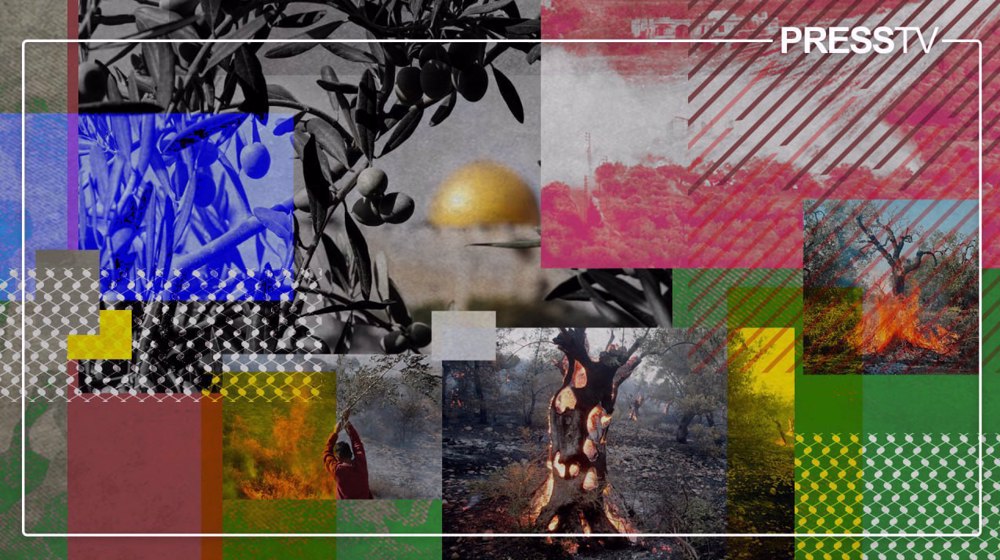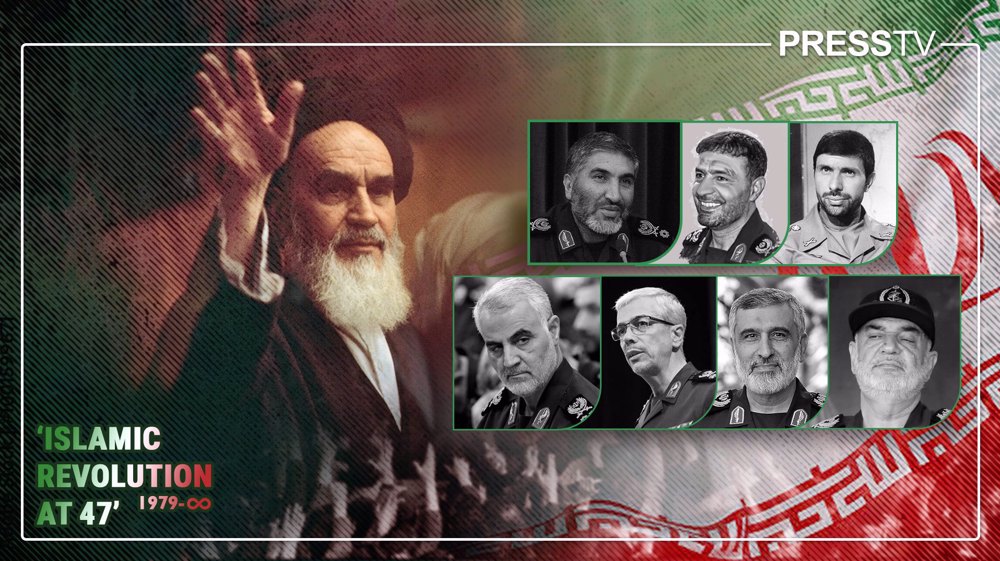Palestine Land Day: A powerful emblem of resistance against settler-colonialism
By Maryam Qarehgozlou
On Land Day, observed annually on March 30 by Palestinians worldwide, displaced Palestinian families reaffirmed their deep-rooted connection to their homeland amid the ongoing genocide in Gaza and the expansion of illegal settlements in the occupied West Bank.
According to reports, an Israeli regime agency approved plans for the construction of more illegal settlements in the occupied Palestinian territories over the past three months than during all of 2024.
Between January 1 and March 19, a staggering 10,503 settler units were approved—surpassing the 9,971 units authorized in 2024. Additionally, 1,344 units were slated for approval on March 25.
In a Land Day statement on Saturday, the Palestinian Colonization and Wall Resistance Commission disclosed that since October 7, 2023—when Israel launched its genocidal war on Gaza—Zionist authorities have seized over 52,000 dunams (12,800 acres) of Palestinian land in the occupied West Bank.
Of that, 46,000 dunams (11,400 acres) were confiscated in 2024 alone under various pretexts, including designation as nature reserves, regime land, and military zones.
The commission further noted that 13 military orders had been issued to establish buffer zones around illegal settlements and that 60 new settler outposts had been erected across the occupied West Bank.
Alarmingly, approximately 24,000 dunams (5,900 acres) were seized under the claim of so-called “state land,” marking the largest land grab in the occupied Palestinian territories in more than 30 years.
On Saturday, in a statement marking Land Day, the Palestinian resistance movement Hamas reaffirmed its rejection of all settler-colonial projects aimed at displacement, resettlement, and the creation of an alternative homeland, emphasizing its commitment to national principles.
“We are deeply rooted in our land, and there is no sovereignty or legitimacy for the occupation over even a square inch of it, especially Jerusalem [al-Quds] and the Al-Aqsa Mosque,” the Gaza-based resistance movement noted.
It reiterated that resistance remains the only means to defend the Palestinian land from Zionist usurpers, reclaim rights, and thwart the occupation’s aggressive agenda.
The significance of Land Day
Land Day, or Yom al-Ard in Arabic, commemorates the events of 1976, when six unarmed Palestinians were brutally killed and hundreds of others were injured while protesting Israeli land confiscations in the Galilee—part of a plan to Judaize the area.
At the time, Israel had ordered the seizure of nearly 2,000 hectares (4,942 acres) of Palestinian land—an area comparable in size to major cities such as London, New York, Lagos, and Tokyo, or approximately 3,000 football fields.
Every year on March 30, Palestinians commemorate Land Day by holding protests and vigils and planting olive trees to reaffirm their connection to the land—acts of resistance that almost always face harsh suppression and violence from Israeli forces.
For the second consecutive year, Palestinians observed Land Day on Sunday against the backdrop of Israel’s ongoing genocide in Gaza, which has claimed over 50,200 civilian lives and left thousands missing since October 7, 2023.
This year’s commemoration also coincided with escalating violence against Palestinians in the occupied West Bank, as Israeli officials intensify calls for the forced removal of Palestinians from their ancestral lands.
Israel’s settler-colonial project
For decades, Palestinians have unwaveringly resisted the Zionist settler-colonial project in occupied Palestine, which essentially aims to ethnically cleanse the indigenous population.
This struggle traces back to the Nakba of 1948, when 85 percent of the indigenous Palestinian population was forcibly displaced and dispossessed by the Zionist entity.
Israeli regime’s attempts to ethnically cleanse the occupied West Bank and Gaza have persisted over the years through relentless bombings, wars, military invasions of refugee camps and towns, and ongoing illegal settlement expansion—actions deemed illegal under international law.
Prime Minister Benjamin Netanyahu's cabinet has prioritized illegal settlement expansion in the occupied West Bank. Netanyahu’s Likud Party pledged to “advance and develop settlement in all parts of the land of Israel – in the Galilee, Negev, Golan Heights, and Judea and Samaria” (the biblical terms for the occupied West Bank).
In a controversial move, the regime passed a resolution in June 2023 granting ultra-Zionist minister Bezalel Smotrich—an outspoken advocate of settlement expansion—broad authority over planning and construction in occupied West Bank settlements.
The decision, which took immediate effect, has streamlined the process for expanding existing settlements and legalizing illegal outposts, consolidating power in Smotrich’s hands while bypassing traditional oversight mechanisms.
Previously, the minister of military affairs was required to authorize at least five stages of the planning process. Now, Smotrich holds both the initial and final say in determining which settlements are built.
Smotrich, himself an illegal settler, has openly stated his intention to solidify Israel’s hold on the occupied territory and prevent the establishment of a Palestinian state.
At a June 2024 conference for his party, he declared his goal of appropriating up to 15 square kilometers (nearly 6 square miles) of West Bank land in 2024.
“We came to settle the land, to build it, and to prevent its division and the establishment of a Palestinian state, God forbid,” he said, vowing to “dramatically change the map” by claiming more West Bank land.
In July 2024, Israeli regime authorities approved the appropriation of 12.7 square kilometers (nearly 5 square miles) of land in the Jordan Valley—marking the largest single land grab since 1993.
Earlier in the year, 8 square kilometers (roughly 3 square miles) were seized in March, following a 2.6 square kilometer (1 square mile) appropriation in February.
US policy and ironclad support for Israel
In 2019, during his first term, then-US President Donald Trump declared that the US would no longer consider Israeli settlements in the occupied West Bank, Golan Heights, and East al-Quds illegal—breaking with decades of international law, US policy, and the stance of most US allies.
The move set a precedent. Following Trump’s re-election in November 2024, the rate of settlement plan approvals surged. The Planning Council shifted from quarterly to weekly meetings, approving hundreds of settler units at a time, according to reports.
Following Trump’s victory, settler leaders Israel Ganz and Shai Alon urged Israel to annex the occupied West Bank, describing his presidency as an opportunity for further land grabs—a demand also backed by far-right minister Itamar Ben Gvir.
Ben Gvir, who lives in the Kiryat Arba settlement, declared in the Knesset on November 6, “This is the time for sovereignty.”
Upon resuming office in January, Trump lifted sanctions on violent Israeli settlers in the occupied West Bank, paving the way for increased settler attacks against Palestinians.
His suggestion that the US should “take over” and “own” war-torn Gaza raised alarms over another potential ethnic cleansing of Palestinians.
Currently, nearly 750,000 Israeli settlers live in 250 illegal settlements across the occupied West Bank—land Israel captured in the 1967 Six-Day War.
As the world marked Land Day on Sunday, this year’s commemoration carried heightened significance amid escalating Israeli land seizures, an ongoing genocidal war on Gaza, and unwavering US support for Israel’s settler-colonial project.
Mustafa Barghouti, General Secretary of the Palestinian National Initiative, told Press TV that Land Day symbolizes Palestinian resistance against the Zionist movement’s goal of seizing Palestine and displacing its people.
“This year, its significance grows as Palestine faces unprecedented settlement expansion led by extremists. Land Day is a call to resist annexation and ethnic cleansing, reaffirming that Palestinians will stand firm and fight for their homeland,” Barghouti said.
Ramzi Rabah, a political activist, also underscored the importance of this year’s Land Day, as plans to annex, settle, and Judaize occupied al-Quds continue.
“The Arab and Islamic stance is crucial in pressuring governments and the international community to reject Israeli policies on al-Quds, protect its status as Palestine’s eternal capital, and defend our people from forced displacement,” he told Press TV.
Anti-Iran ‘Munich circus’ shows Europe has lost geopolitical weight: Araghchi
Swiss to act as venue of next round of Iran-US talks: Report
Report: Over 50,000 soldiers fighting in Israeli military hold foreign citizenship
Danish PM warns US attack on Greenland would spell end of NATO
Power running out at key Gaza hospital, ICU patients at risk: Report
VIDEO | Press TV's news headlines
‘Speaking truth is her crime’: Netizens rip into European allies of Israel for targeting Albanese
Russia reaffirms support for Iran’s sovereignty amid rising US threats










 This makes it easy to access the Press TV website
This makes it easy to access the Press TV website